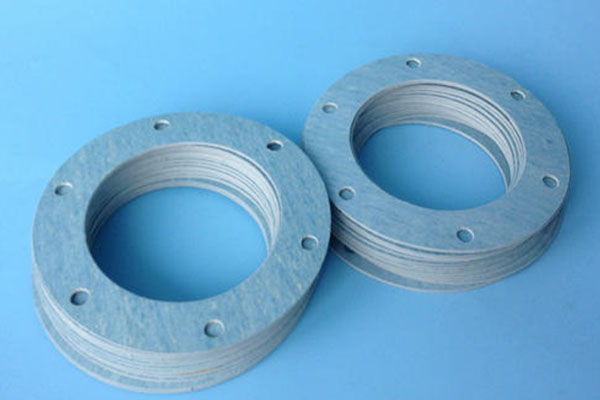For non-asbestos gasket seals, the leakage status is related to many factors, such as the physical properties of the sealing medium, working conditions, the roughness of the flange sealing surface, compressive stress, and the basic characteristics, dimensions, loading and unloading history of the gasket and so on. The following is an introduction by the non-asbestos board manufacturer, I hope it will help you!
Influence of working conditions
The working conditions of the gasket seal include the pressure and temperature of the medium. Under different pressures and temperatures, the leakage rate is different. The pressure difference between the two sides of the seal is the main driving force for leakage. The greater the pressure difference, the easier it is for the medium to overcome the resistance of the leakage channel, and the easier it is to leak. Temperature has a great influence on the sealing performance of the connection structure. Studies have shown that the elastic and plastic deformation of gaskets increase with increasing temperature. The elastic properties decrease with increasing temperature, and the amount of creep increases with increasing temperature. As the temperature increases, the aging, weight loss, change and relaxation of the gasket will become more and more serious. In addition, temperature has no great influence on the viscosity of the medium. As the temperature increases, the viscosity of the liquid decreases, and the viscosity of the gas increases. The higher the temperature, the greater the possibility of leakage.
The influence of the physical properties of the sealing medium
Using the same sealed connection form, under the same working conditions, the leakage rate of gas is greater than that of liquid, and the leakage rate of hydrogen flies is greater than that of nitrogen. This is mainly caused by the same physical performance parameters of the sealing medium. Among the physical properties of the sealing medium, viscosity has a greater influence. Viscosity is a measure of the internal friction of a fluid. For high-viscosity media, the leakage resistance is large and the leakage rate is small; for the low-viscosity media, the leakage resistance is small and the leakage rate is large.

The influence of flange surface roughness
Under the same gasket preload, the flange surface roughness is different and the leakage rate is also different. Generally, the smaller the surface roughness, the smaller the leakage. The sealing effect of the sealing surface of the grounded flange is better than that of the ungrounded flange. This is mainly due to the small roughness of the sealing surface, and its unevenness is easy to fill, thereby greatly reducing interface leakage.
Compressive stress of tone gasket
The greater the compressive stress on the gasket, the greater its deformation. On the one hand, the deformation of the gasket effectively fills the unevenness of the flange surface, which greatly reduces the interface leakage; on the other hand, the capillary inside the gasket itself is compressed, the cross section of the leakage channel is reduced, and the leakage resistance increases. This causes leakage. The speed is greatly reduced. However, if the compression stress of the gasket is too large, the gasket may be crushed, thereby losing elasticity, and cannot compensate for the separation of the flange surface due to temperature and pressure, resulting in a sharp increase in the gasket. Leak rate. Therefore, it must be maintained in good condition. In order to seal, the compressive stress of the gasket must be kept within a certain range.